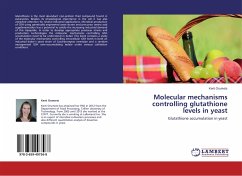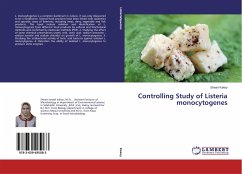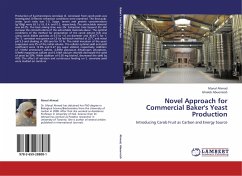Glutathione is the most abundant non-protein thiol compound found in eukaryotes. Besides its physiological importance in the cell it has also attracted attention for several industrial applications. Microbial production of GSH using genetically engineered yeast strains and precursor amino acid supplementation has a potential to satisfy the increasing industrial demand of this tripeptide. In order to develop appropriate producer strains and production technologies the molecular mechanisms controlling GSH accumulation need to be understood in detail. This book contains a study of the molecular mechanisms controlling intracellular GSH levels in both an industrial baker's yeast strain of Saccharomyces cerevisiae and a random mutagenized GSH over-accumulating isolate under various cultivation conditions
Bitte wählen Sie Ihr Anliegen aus.
Rechnungen
Retourenschein anfordern
Bestellstatus
Storno








